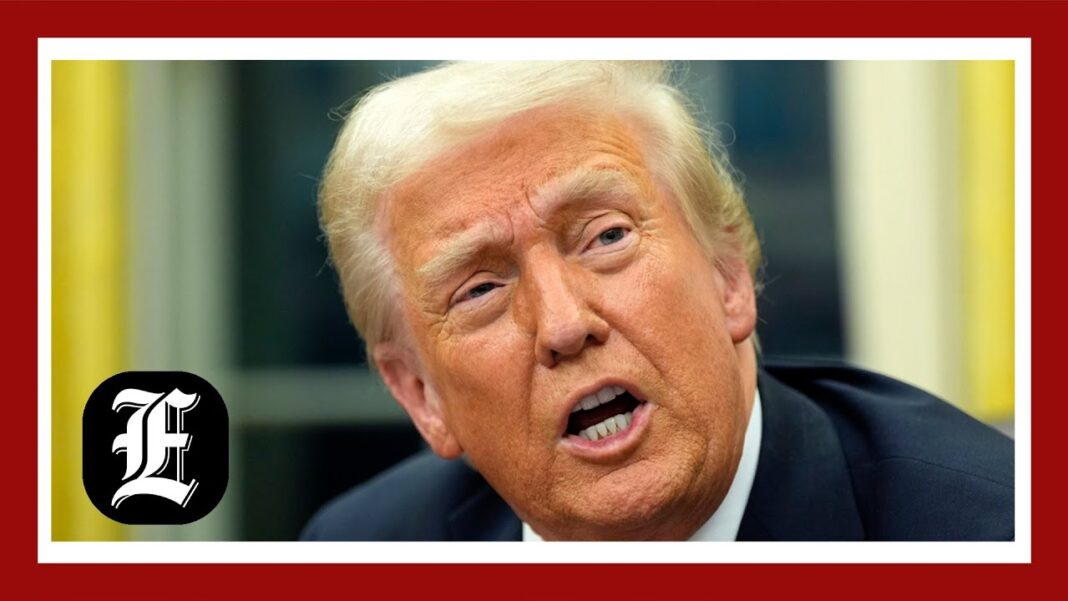The Democratic Republic of Congo appears to be turning to the US in its latest efforts to find an ally in its fight against advancing M23 rebels. Recognizing that the White House of President Donald Trump is interested in transactional relationships – and seeing the proposed Ukraine-US mineral deal – the resource-rich DR Congo is hoping to strike its own agreement with Washington. Congolese government spokesperson Patrick Muyaya confirmed to the BBC’s Newsday program that his country wanted to bring the US on board and supply it “with some critical minerals.”
“Of course… we can also talk about security,” he added.
Yet, this is not the first time in history that the United States has been involved directly or indirectly in the DRC. Beginning in the 1950s, America viewed Belgium as a proxy in the Congo, and the interests of Washington were not to be denied.
For 75 years, Belgium ruled the Congo with nearly unprecedented brutality. From the reign of King Leopold II to its years as a Belgian colony, the country endured years of mass murder, rape, and mutilation. The Belgian rule of the Congo was marked by brutality. About 10 million Congolese people were killed during King Leopold’s reign alone — which lasted from 1885 to 1908. Countless others were mutilated for failing to meet production quotas for rubber, ivory, and minerals. The Congolese were considered second-class citizens in their own country. Before 1958, native Congolese couldn’t vote, hold office or high-ranking positions in the army, or attend Belgian universities.
This was the world that Patrice Lumumba grew up in — and his connection to the Congo’s violent past ran deep. Born into the Batetela tribe, he’d seen his people forcibly dispersed throughout the country. In addition, many Batetela people were victims of Belgium’s routine mutilations.
But in 1960, the Congo was to gain its independence — and it seemed like Patrice Lumumba was the perfect man to usher in a new chapter for his country.
The Belgians could also see the writing on the wall. Although they threw Lumumba in jail after an anti-colonial riot in 1959, they couldn’t suppress his appeal to many Congolese people who were tired of Belgian brutality. When the Belgians convened a round-table in Brussels to discuss Congolese independence, Lumumba personally flew to Belgium as a delegate.
After two round-table conferences in early 1960, Congolese and Belgian delegates returned to the Congo to recognize its independence on June 30, 1960. By this point, Lumumba had been chosen to be the country’s prime minister, serving with the president, Joseph Kasa-Vubu.
A renowned Congolese independence leader, Lumumba was just 35 years old when he became prime minister. Bright, charismatic, and passionate about his cause, Lumumba promised the Congolese a fresh start. And during his first big speech as prime minister, he denounced the era of colonialism.
At the Palais de la Nation in the Congo, King Baudouin of Belgium gave a speech describing Congolese independence as a Belgian “gift.” He also praised King Leopold II — whose reign over the Congolese people had been particularly brutal. Next, Kasa-Vubu applauded Belgium and reassured the journalists present that, fundamentally, nothing would change.
But then, it was Patrice Lumumba’s turn. The new prime minister rose before the crowd. And he gave a thundering indictment of the Belgian brutality that had scarred the Congo for years.
“No Congolese will be able to forget that [independence] was won in struggle, a struggle in blood, fire, and tears,” he declared, in front of an audience that included the Belgian king, Baudouin I.
“Morning, noon, and night we were subjected to jeers, insults, and blows because we were “Negroes,” Lumumba roared.
Lumumba’s bold vision for the Congo’s future made him an iconic figure among his supporters. But his unapologetic condemnation of colonialism also made him many enemies — both at home and abroad. After less than three months in office, he was forcibly removed from power. And shortly thereafter, he was arrested, tortured, and assassinated.
In late June of 2022, a gold-capped molar returned to the Democratic Republic of Congo. This was all that remained of Patrice Lumumba after his death from a firing squad and his body burned and then dissolved in acid – in a futile attempt by the Belgian authorities to make him and his ideas disappear. This artifact would play a pivotal role in the first official tribute to the martyrdom of the country’s former prime minister since his assassination on January 17 1961.
Within days of its independence from Belgium on June 30 1960, the Congo was plunged into chaos, with army mutinies triggering a Belgian military intervention, the secession of the mineral-rich Katanga province and the arrival of UN troops. Patrice Lumumba, the anti-colonial hero and pan-African nationalist, asked the US repeatedly for help but to no avail. Soviet premier Nikita Khrushchev did not jump to help him straight away either.
But Washington and Brussels (seen as a US proxy in the Congo at the time) misread Lumumba’s talk of Pan-Africanism and non-alignment. It was viewed as a fateful drift towards the communist bloc, which was more hype than fact. Lumumba himself said: “We are not Communists, Catholics, or Socialists. We are African nationalists.”
Yet, he would fall victim to Cold War political intrigue. The then director of the CIA, Allen Dulles, called Lumumba “a Castro or worse,” referring to the late Cuban leader Fidel Castro. During a trip to Washington in July 1960, Lumumba was snubbed by President Dwight Eisenhower. A planned audience was not to be.
Twenty years ago, declassified documents in the US showed that Eisenhower may have (during a White House meeting on the Congo crisis with his national security advisers in August 1960) directly ordered the CIA to assassinate Lumumba.
Eisenhower’s words would become the subject of debate for decades. But, whatever the exact phrasing, the US president’s message that day came through clear enough: Will no one rid me of this problematic prime minister? He did not seem to have many qualms and, after possibly becoming the first-ever US president to order the assassination of a foreign leader, he headed to a whites-only country club in Bethesda – to play golf.
Weeks later, Eisenhower discussed the Congo crisis with Lord Home, Britain’s foreign secretary. The president expressed his wish that “Lumumba would fall into a river full of crocodiles,” another US document records.
An essential takeaway from the US plot to kill the Congolese leader was that although the CIA had been unsuccessful in getting to Lumumba, its efforts in the Congo had turned into something of a blueprint for subsequent covert interventions in which assassinating political targets was no longer beyond the pale.
After failed attempts to use a Georgian hitman and a poison expert to adulterate Lumumba’s toothpaste, the CIA devised almost satirical methods to try to kill Cuba’s Castro with poisoned cigars. Over the next three decades of the Cold War, the US aided pro-American dictators worldwide, especially in Latin America, thanks to “lessons it drew” from the Congo.
Larry Devlin, then CIA station chief in Léopoldville, now Kinshasa, befriended Joseph-Désiré Mobutu – “the most sincere US friend in Congo.” The latter took power in a coup, and handed his once-friend Lumumba to the Katangan secessionists who, ultimately, pulled the trigger flanked by Belgian officials.
He renamed himself Mobutu Sese Seko, renamed the country Zaire and ruled as a kleptocratic dictator for 32 years.
But it is Patrice Lumumba, the African nationalist, who is remembered for his courage and dedication to African nationalism – not the sycophants of Western imperialism.
Washington is again at the gates of Congo – may “tomorrow” be different from “yesterday” for the people of the Congo.







